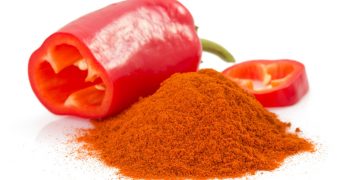Water retention is typically treated with diuretics, that expels excess water from your body. However, these medications came with a big disadvantage, they will also expel other vital nutrients your body needs for its proper functioning.
Doctors usually opt for diuretics on serious medical conditions such as congestive heart failure. If you want to lose those excess fluids in your body the safe and effective ways, then there are some simple self-help remedies that involve altering your diet, drinking herbal teas, and going for a brisk walk multiple times a week might help a great deal in flushing out the unwanted fluids.
Why do you have fluid retention?
Normally fluids in your body travel through the blood vessels and lymph channels. But these fluids can get stuck in the tiny spaces between your cells and make the spot where it is locked in appear swelled.
On most occasions, the causes of water retention is easy to identify. Some common causes include salt-rich diet, knee-high stockings, wearing tight clothes, which makes the fluid from the bloodstream to leak into intracellular spaces. However, there are complex forms of fluid retention as well, this includes hormone changes that alter the function of blood vessels and lymph glands.
On rare occasions, water retention could be a symptom of kidney disease, liver problems, or congestive heart failure.
Drink water to expel water
I may sound like a strange idea, but it might just do the trick. Your body has a natural intelligence to store up whatever it is starved off. This is the reason why people who suddenly reduce their food intake to lose weight actually start to gather more weight. If you are dehydrated your body will actually start to store up more water to beat the dry spell.
Again, it can become counterproductive if you drink a lot of water, because you will urinate more and in the process lose more mineral salts. Health experts recommend drinking around 2 to 3 liters of water a day. More importantly, drink when you feel thirsty.
Minimize your sodium intake
Do you know that a major portion of your salt doesn’t come from the salt shaker on your dining table? But from the processed foods like sauces, soups, and packaged snacks. This contributes to a major portion of your sodium intake. Avoid processed foods and snacks as much as possible and try to consume fresh fruits and vegetables instead. Doctors recommend consuming not more than 2400 milligrams of salt a day.
Increase your potassium intake
Potassium is not a diuretic. However, in order to balance and regulate the sodium level, you need to consume a good amount of potassium every day. The right balance of potassium and sodium in your body leads to the right levels of body fluids. Health experts recommend consuming as much as 5000 milligrams potassium every day.
Potassium supplements will not help you on this respect because they come in a maximum dosage of 99 milligrams per capsule, and can get very expensive. Consume potassium-rich foods instead. Some of the potassium-rich foods include bananas, avocados, citrus fruits, and most kinds of meat.
Drink dandelion tea
Dandelion leaf is a rich source of potassium and it is a natural diuretic which makes your kidneys to expel more water.
If you can find a dried dandelion leaf, add 1.5 tablespoons of dried leaves to 1 quart of water and boil it for around 10 to 15 minutes in simmer. Cool it down, strain out the leaves, and drink the tea lukewarm. Do not add any sugar or honey to taste.
Drink this two to four times a day to notice good results.
Drink stinging nettle tea
Nettle herb is a popular diuretic and helps to expel out those excessive fluids the safe way.
Mix one teaspoon of nettle root powder to 1 cup of cold water and bring it to boil. After boiling it for a minute take it away from the stove and let it steep for 10 minutes and drink the tea.
Drink this tea at least three times a day.
Drink corn silk tea
Corn silk contains really high levels of potassium and has a mild diuretic effect on your body.
Add 1 teaspoon of corn silk to a cup of boiling water, let it steep for 2 to 3 minutes. Strain and drink the tea lukewarm.
Drink two to four cups of this tea every day.
Include these diuretics
While you are busy including fresh vegetables and fruits that are rich in potassium into your everyday diet, try to give some room for these natural diuretics in your belly each day: celery, watermelon, asparagus, and cucumbers.
Include turmeric into your foods
The popular yellow spice is well known for its anti-inflammatory properties, and not just that. It has the power to arrest water retention according to a research study done in China. You can add a pinch of turmeric powder to a glass of warm milk every morning and drink it.
Turmeric can be used in your recipes while cooking as well. Make sure you do not get too generous and spoil the taste on your dish.
Try Vitamin-B6 supplement
If you have problems with water retention right before your menstruation, then try to take 200 milligrams of Vitamin-B6 supplement every day just five days prior to the start of your regular period.
Vitamin-B6 is a diuretic, and it helps to get rid of excessive fluids in your body through urine. Additionally, it helps to balance estrogen and progesterone hormone levels in women.
Best natural sources of this vital vitamin include spinach, poultry, and bananas.
Drink parsley tea
Parsley tea an old folk remedy for water retention. Studies have shown that parsley has a mild diuretic effect and is helpful in fluid retention. Steep two teaspoons of dried parsley leaves in a cup of boiling water for 10 to 15 minutes. Strain and drink the tea warm.
You can drink up to three cups a day for good results.
Exercise regularly
Regular exercise is a great way to expel the water retention in your legs, which is a common place for fluid accumulation. This is because the gravity pulls the water downward, swelling up your ankles and lower legs.
Try to go for a walk for at least 20 to 30 minutes every day. Walking and jogging are two most effective exercises to make your legs looking normal again.
Lift your legs
Just before going to sleep every night, try to lie down on your couch or bed lift your legs above your chest level, so that the water locked near your ankles and feet can make its way back into the bloodstream and expelled through urine. You can prop your legs using pillows.








